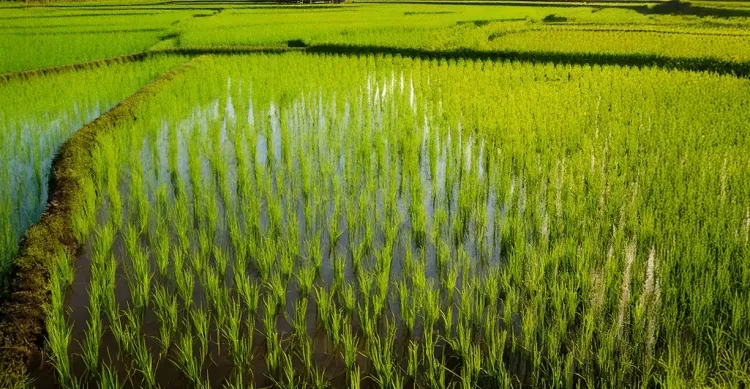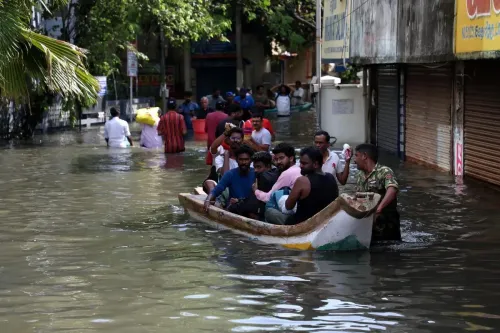How Can TN Agri Technocrats Enhance Water Resource Efficiency for Paddy Cultivation?

Synopsis
Key Takeaways
- Optimize water resources for effective paddy cultivation.
- Set clear acreage targets for Kuruvai, Samba, and Thaladi crops.
- Complete nursery planting by specified deadlines to avoid monsoon damage.
- Enhance farmer awareness regarding direct sowing techniques.
- Ensure timely water release from inter-state agreements.
Chennai, May 19 (NationPress) A group of esteemed agricultural experts in Tamil Nadu has called on the state government to implement proactive measures to assist farmers in paddy cultivation, ensuring alignment with water availability and seasonal schedules to achieve the highest possible crop yield.
The committee, which includes P. Kalaivanan, P. Venkatesan, V. Palaniappan, and V. Kaliyamurthy, welcomed the government’s announcement to commence water release from the Mettur Dam on June 12. They pointed out that this decision provides an opportune moment for effective Kuruvai and Samba paddy cultivation, assuming adequate advisory and support systems are established.
In their suggestions, the specialists highlighted the necessity of maximizing the use of available groundwater resources to plant at least four lakh acres for the Kuruvai crop. They proposed a cultivation goal of 5.25 lakh acres for Kuruvai, 9.30 lakh acres for Samba, and 4.50 lakh acres for Thaladi.
To safeguard crops from possible damage during the Northeast Monsoon, the experts recommended that Kuruvai nursery planting should be finalized by June 30 and Samba planting by August 15.
They also urged for extensive awareness campaigns to encourage direct sowing practices during the Samba season to enhance efficiency and resilience.
However, the experts cautioned that meeting these targets necessitates a minimum of 330 TMC of water. Current storage levels are merely 76 TMC, with only 70 TMC available for irrigation.
In this light, they appealed to the state government to secure the release of the state’s allocated share of 167.25 TMC of water from Karnataka as per the inter-state agreement.
The panel also pointed out the immediate requirement to desilt C and D canals and their branch networks to ensure smooth water flow to the tail-end regions. They argued that proper canal maintenance, timely water release, and strategic crop planning are crucial for maximizing productivity in the forthcoming cultivation cycle.
The technocrats concluded by stressing that coordinated efforts, farmer education, and efficient water use are essential to navigate climatic uncertainties and uphold food security in the state.









